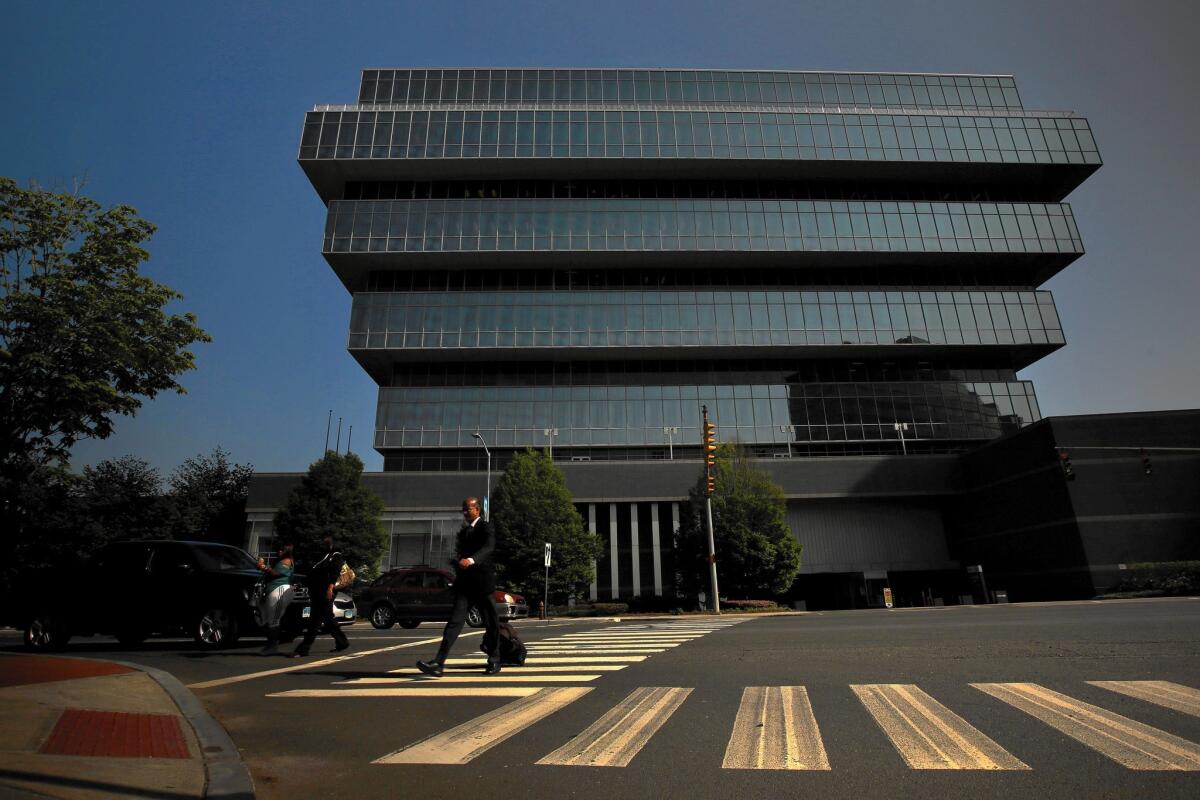Purdue’s massive opioid settlement is tangled in a bankruptcy court fight

- Share via
Purdue Pharma’s massive settlement over claims that it helped spark the opioid crisis is facing pushback in federal court, creating a potential stumbling block for the landmark deal.
Purdue has agreed to plead guilty to three felonies and pay $8.3 billion to settle federal investigations of how it marketed the painkiller OxyContin. But the deal violates bankruptcy rules because it locks in details of Purdue’s future and forces the hand of other creditors, according to court papers filed by a group of U.S. states and bankruptcy professors.
States and cities suing Purdue have been in talks with the bankrupt pharmaceutical giant for months over how to settle thousands of opioid lawsuits. The settlement with the U.S. Department of Justice unveiled last month dictates that Purdue will be repurposed as a public trust after it emerges from bankruptcy, which creditors haven’t agreed to.
“If approved now, the proposed settlements would straitjacket the parties just as they are addressing the complex questions surrounding the future of Purdue,” a group of states suing Purdue argue in their objection.
If states and cities don’t sign off on the settlement, they risk losing any potential payout in the bankruptcy because their claims would be diluted by the Justice Department, according to the objection. They’re asking U.S. Bankruptcy Judge Robert Drain to hold off on approving the settlement until creditors have a chance to vote on a bankruptcy plan.
A group of nine bankruptcy professors filed court papers taking those arguments a step further, saying they’re concerned the Purdue deal misuses the bankruptcy system and will “preclude a full airing of the responsibility of the Sackler family for the opioid crisis.” That’s because Purdue’s settlement would essentially force creditors to go along with a separate plan that would release members of the Sackler family from future legal fights, the professors argue.
Members of the Sackler family deny they did anything illegal or unethical in connection with the marketing of Purdue’s products. But they have agreed to pay $225 million to settle allegations that despite knowing in 2012 that the legitimate market for opioids had contracted, they pressed on with marketing plans that caused doctors to overprescribe painkillers.
“Resolution with the U.S. Department of Justice is an essential step in our bankruptcy process because, without that resolution, all of Purdue’s other creditors would be at risk of getting nothing,” Purdue said in an emailed statement. “While the [Justice Department] settlement is a critical building block that will allow us to progress a plan, it does not dictate any constituent’s plan treatment as some objectors have alleged.”
A representative for the Mortimer Sackler family declined to comment. A representative for the Raymond Sackler family didn’t immediately respond to a request for comment.
The case is Purdue Pharma, 19-23649, U.S. Bankruptcy Court for the Southern District of New York (White Plains). To view the docket on Bloomberg Law, click here.
More to Read
Inside the business of entertainment
The Wide Shot brings you news, analysis and insights on everything from streaming wars to production — and what it all means for the future.
You may occasionally receive promotional content from the Los Angeles Times.









